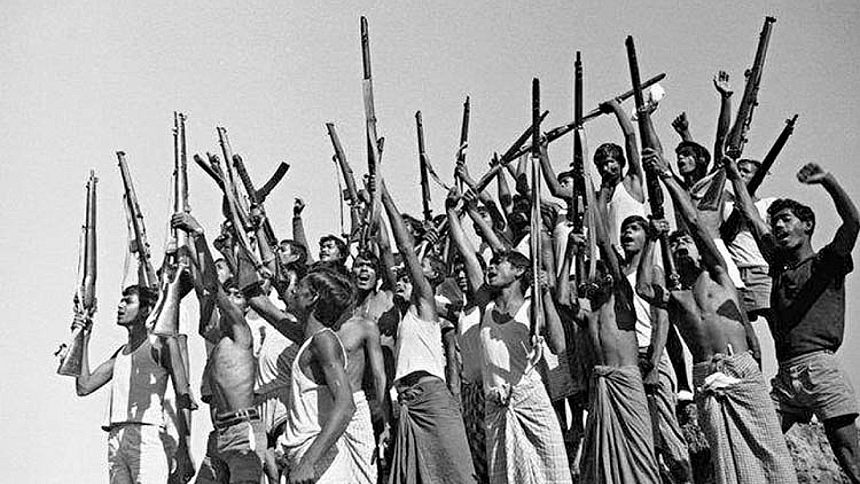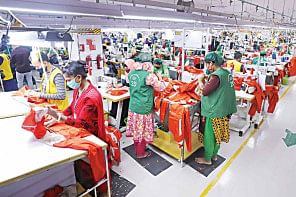A Study on Learning History

One of the most fundamental aspects of our education entails learning about the history of our country -- learning about how Bangladesh came to be, about how we gained independence, and the people who fought so valiantly to give us the right to speak in our own language. It's crucial that we know where our roots lie and learn about the people who made it possible for us to be our true selves.
Yet, as we learn about these parts of our history, we need to wonder whether they are taught right. We are lucky enough to live during an age where information is always one click away from us, and there are a thousand different ways in which we can absorb that information, but do our teachers know that? And more importantly, do they take full advantage of these resources to teach us about our history in the best possible way that they can?
The internet gives us access to a wide range of resources that can give more depth to our education than our history books can. In the 49 years since the Liberation War, thousands of different resources have been produced that can help us get a better understanding of 1971. Spanning over different areas of the war, from the international dimensions of the violence to the aftermath of the war, the wide variety of resources on the internet can provide us with a perspective of the war that differs from traditional ones. Perhaps most importantly, getting access to these resources allows us to draw conclusions about the war ourselves and lets us ask the important questions: What was the domestic political climate like at that time? What international context contributed to the violence and accelerated it? What kind of pre-conditions contributed to the violence and what were its ramifications?
Traditionally, we are taught only enough for us to know our history, but not enough to question the events that led up to the war, and in order for us to understand the history of our country better and think critically, it's important for us to know that these resources are at our disposal. Instead of reiterating what we are taught by our teachers, these resources can allow us to draw our own conclusions based on facts, and ultimately, understand the Liberation War better.
Utilising these resources to understand this historical event better can go a long way in helping us develop critical thinking skills, which is why it is important that schools slowly start integrating them into their curriculums. It is also important that we use these resources to help overcome the differences in Bangladeshi History education in English medium and NCTB curriculums.

While NCTB students are well-versed in the history of our country, English medium students often lack that education. "My brother, who attended a renowned English medium school in Dhaka, could not tell the difference between Victory Day and Independence Day and could seldom tell me any concrete facts about the Liberation War," remarks Samrin Huq*, a student at Brac University. "Studying in an English medium school should never be an excuse for not knowing the basics of our history."
Perhaps stark differences such as these can be attributed to our curriculums, or perhaps it can be attributed to the fact that English medium students often get a free pass for not knowing their own history. "My sixth grade Bangla teacher would often tell me that not knowing much about the Liberation War was alright because I went to an English medium school," Samrin recalls. In order to overcome these differences, it's crucial that we hold schools accountable for not doing enough to teach us about our history.
When asked, most students from English medium backgrounds reported that they felt their history lessons were inadequate. "I wanted to learn more, but our history books never taught us more than we needed to know. Most of the things I know about our Liberation War, I learned out of my own research after spending hours on the internet. I learned more about the War from my Bangla teacher rather than a History teacher. This is not how it should be," says Sabahun Salam, a high school senior in Dhaka.
Others have a slightly different perception. "The magnitude of the Liberation War was always present, but we were seldom taught more than important dates and events. History lessons sometimes made us read things that fit into the grand scheme of things, but not the events you could think of independently. I remember thinking about why the March 25 crackdown happened all of a sudden and the conditions that led to it. The answer I was given barely covered the surface of things, telling me that it happened simply because of Bangabandhu's March 7 speech. It didn't make sense," says Amrin Haider*, an undergraduate student studying in Canada.
Most English medium students also noted that much of their education on the Liberation War was invested during their younger years, which is why their teachings are lost to them now that a good decade has elapsed since they were taught. On the other end of the spectrum, NCTB students feel that their teachings are more than adequate but that much of it is attributed to the fact that they have to sit for exams regarding the topic.
However adequately students feel they know about their own history, there is no disregarding the fact that our methods of teaching history can be improved. We have at our disposal thousands of resources that can help students understand the violence of 1971 better and schools should reasonably put in more effort to integrate them into our curriculums so that we can gain a better understanding of the events. Almost 50 years after we claimed our victory from our oppressors, there are thousands of films, stories, music, poetry, witness reports and freedom fighter testimonies that students can study. In order to understand our history better, it is crucial that we take a step away from our traditional textbooks and observe the events through the various other resources that we can easily access.
Looking at the testimonies of freedom fighters, eye-witness testimonies and perhaps even the perpetrators of violence can give students such meaningful insights into how the violence occurred, and perhaps begin to understand what culmination of events lead to our liberation. Furthermore, dissecting the various films and music at our disposal can give students new perspectives into the lives of the freedom fighters as well as survivors of violence. Songs like Maa Go Bhabna Keno sing of the emotional background of war. Salam Salam Hajar Salam is a song about the lives lost to the language movement of 1952, but it went on to inspire everyone in 1971 and beyond. These evoke emotions like no other medium can and it is vital that students get access to these extraordinary accounts to try to understand the events that led to the birth of Bangladesh.
Other resources should also be reasonably a part of curriculums, such as field trips to the Liberation War Museum, and the National Museum. First-hand engagements with the material can provide more insight into the events than reading from a textbook can.
Aside from learning our ABCs and 123s, learning about our history is one of the most crucial aspects of our education, yet sometimes it isn't treated as such. Many schools not only fail to integrate adequate teachings about the Liberation War into our curriculums, but also fail to include the different methods of teaching history.
As we enter yet another year where we may have to rely entirely on the internet for our education, it is vital for us to remind ourselves of the things it can give us that stray from our traditional approach to education and make the best use of those resources to keep learning about the events and the people that have allowed for us to be who we are today.
*Names have been changed for privacy.

 For all latest news, follow The Daily Star's Google News channel.
For all latest news, follow The Daily Star's Google News channel. 



Comments